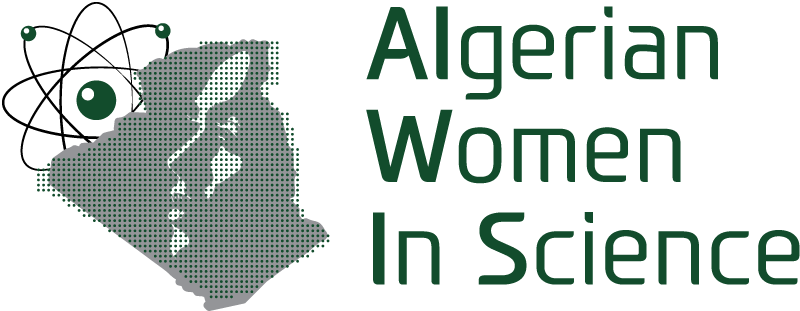The Story of the Algerian Woman in Science by Lydia Ait-Belkacem
- Algerian Women In Science ALWIS
- Jan 21, 2023
- 3 min read
To be a woman in science means to be at the crossroads of technical and educational challenges of science, preset patriarchal expectations of society and also, personal obstacles pertinent to the woman herself. At a young age, an individual who is initially interested in science is either discouraged or encouraged by their surroundings. It isn’t solely limited to science, this applies to any domain under the STEMM title. STEMM stands for science, technology, engineering, mathematics and medicine.
"When we visualize life aspirations as seeds, we can appreciate and understand them for their silent and invisible growth at the early stage. The transition to visible fruition is a daring one, and if welcomed well, dreams can authentically manifest."

Unfortunately, the narratives about women branching into STEMM have centered difficulties that are inherently rooted in stereotypes, biases, and culture-related hindrances. Black women and women of colour, especially, have experienced a plethora of instances of varying nature that have hindered their potential of succeeding in STEMM-related disciplines. It is important to make distinctions between the experiences of women across the world (Salhi, 2010). Although overarching terms are being used in this particular paragraph, it is important to recognize that experiences of women worldwide are not unanimous (Salhi, 2010). The heterogeneous nature of experiences of women in STEMM make a strong case for the importance of addressing them in a constructive way.
In this article, the story of the Algerian woman in particular is being addressed for the sake of acknowledging how the country’s events have impacted the current state of disparities in STEMM. Algerian women have played key roles in the decolonization and freedom of Algeria. In her brilliant article, Salhi (2010) states that,”The rebellion of Algerian women had two fronts: it was simultaneously a rebellion against the colonial occupation and against the restrictive attitudes of traditional Algerian society.”
We cannot talk about the challenges that the Algerian woman encounters while pursuing science or other domains under the STEMM umbrella, without factoring in the personal and societal pressures that they go through. There is a long-standing history of the Algerian woman being used as a tool in political and psychological warfare (Seferdjeli, 2005). It is important to acknowledge how many women in Algeria have been through severe policing at the ends of forced westernization and also as cruxes during the civil war that ensued after that.
"The concept of Algerian womanhood is undeniably and inherently a political one. It has caused Algerian women to mentally and physically suffer thus impacting their career choices over time instilling intrinsic thought processes in the forms of ultimatums. It poses conflict between upholding their reputations as traditionally — women of the home or in a modernist manner— women in the workforce."
Algerian women are actually heavily interested in studying medicine, pharmacy, and other domains under STEMM. The conversations about graduation and education always intertwine the choice to pursue STEMM with pride. This makes women feel more valued and empowered however there remains a discrepancy in the employment rate. Numbers produced by the National Statistical Office of Algeria has shown that there is a gap between women and men in the workforce in Algeria. This is most likely to be due to programming of mentalities at a societal level. Women are faced with ultimatums and feel they have to pick between their jobs and their choice to get married.
As a conclusion, storylines that revolve around the trauma and difficulties of Algerian women, especially in the workforce and in STEMM, can be limiting and restricting of their potential. We can acknowledge the scars of women existing in post-colonial Algeria whilst still choosing to emphasize and highlight strategies of empowerment. This ensures acceleration of the spread of knowledge for a future as bright as our ancestors had imagined it.
Our aim with this article is to reform our storylines as Algerian women to favour the intentional and aspirational forces that drive us to pursue STEMM paths.
Articles mentioned:
Salhi, Z., 2010. The Algerian feminist movement between nationalism, patriarchy and Islamism. Women’s Studies International Forum, 33(2), pp.113–124.
Seferdjeli, R., 2005. The French Army and Muslim Women During the Algerian War (1954–62). Hawwa, 3(1), pp.40–79.
